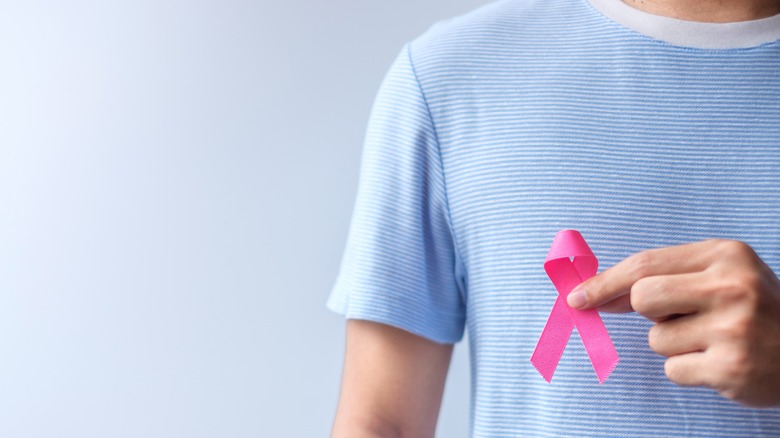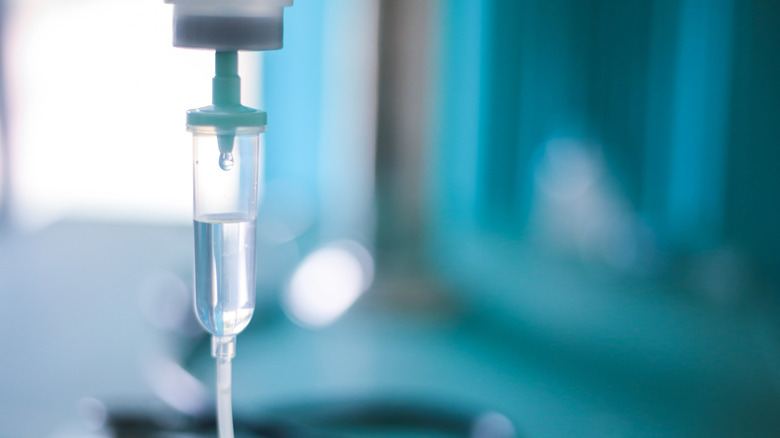Can Men Get Breast Cancer?
Breast cancer is generally considered a disease that affects women, and for good reason. The American Cancer Society names breast cancer as the most common cancer among women in the United States. In addition to that, it represents 30% of all cancers in women every year. The organization estimates that there will be more than 287,000 new cases of invasive breast cancer reported in 2022, and around 43,000 women will die from it.
But that doesn't mean that men can't develop breast cancer. The fact is that they can — simply because they have breast tissue — and the kinds of breast cancer they get is the same kind women have, according to the Centers for Disease Control and Prevention (CDC). The agency reports that out of every 100 cases of breast cancer, one will be a man. Breast cancer is unusual in men under the age of 35, and most cases are seen in men between 60 and 70 years old (via WebMD).
Types and symptoms of breast cancer in men
The majority of male breast cancer cases is ductal carcinoma, cancer that occurs in the milk ducts. Men are less likely to develop lobular carcinoma, which is cancer of the lobules in the breasts. Men can also develop Paget's disease and inflammatory breast cancer, but it is very rare, according to the Mayo Clinic.
Men experience some of the same symptoms of breast cancer that women do. Most of the time, a lump is the first sign (via WebMD). The National Health Service reports that breast cancer lumps in men are painless, hard, and do not move around within the breast tissue. They may also be accompanied by small lumps in the armpit, which is a sign of swollen glands. Nipples may ooze, become swollen, turn inward, or develop a rash. Bleeding from the nipple is an indication the cancer has spread (via WebMD), which is why men should talk to their doctor about any concerns they have.
Risk factors and treatment for male breast cancer
Certain risk factors increase the likelihood that men might develop breast cancer. These include a close female relative diagnosed with the disease, enlarged breasts, taking estrogen, liver disease, obesity, radiation exposure to their chest, and testicular diseases or injuries (via WebMD). The CDC points out that some inherited genetic mutations, such as BRCA1 or BRCA2, can increase risks. If you have family members with any genetic predispositions for breast cancer, you should tell your doctor.
Treatment for male breast cancer is similar to what women undergo, and will also depend on how advanced the cancer is. According to WebMD, the most common treatment is a mastectomy, which involves removing breast tissue and possibly lymph nodes if the cancer has spread. Radiation therapy and chemotherapy are also options that lower the risk of cancer spreading after surgery. If the cancer is what the Mayo Clinic terms "hormone sensitive," hormone therapy might be an option.



